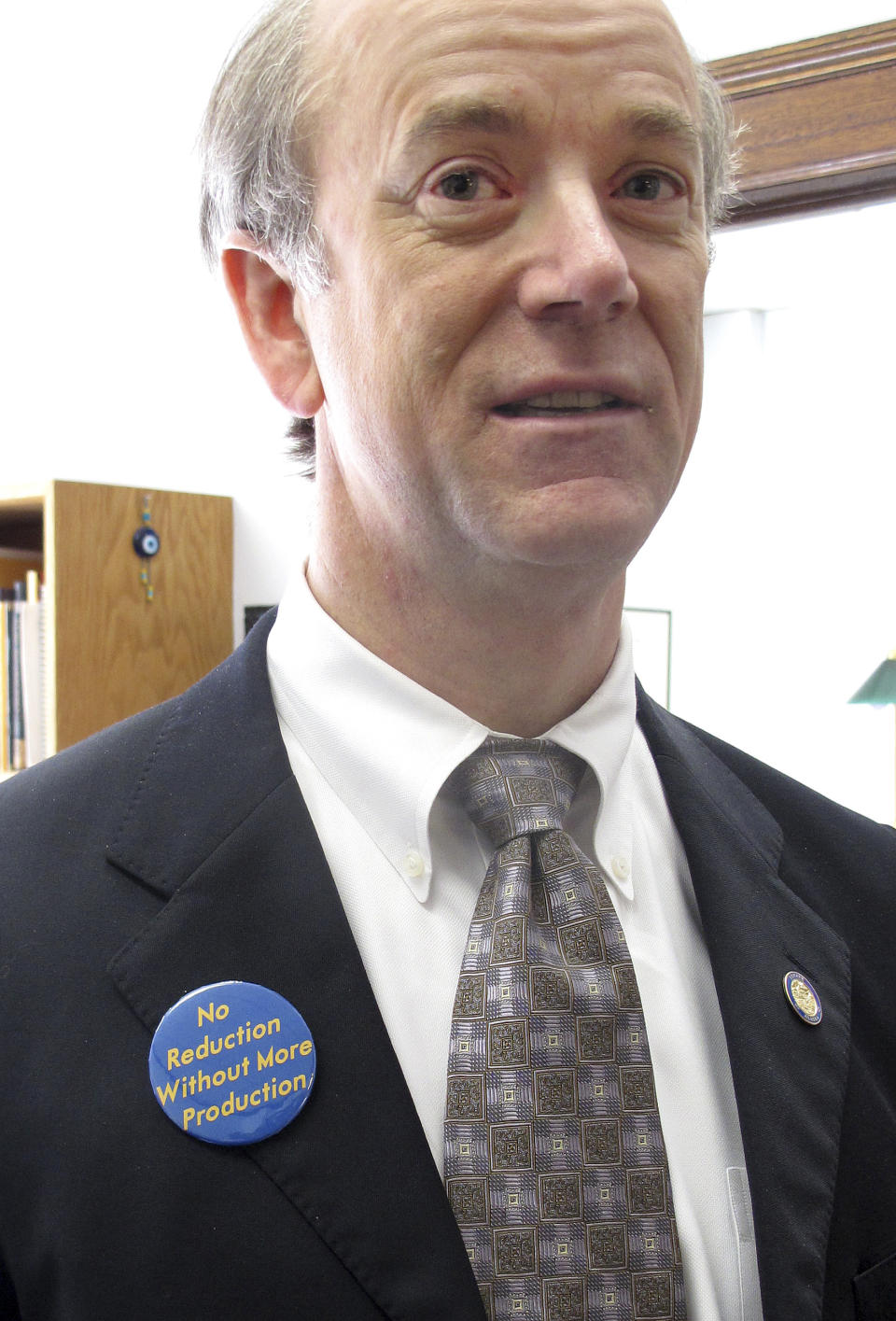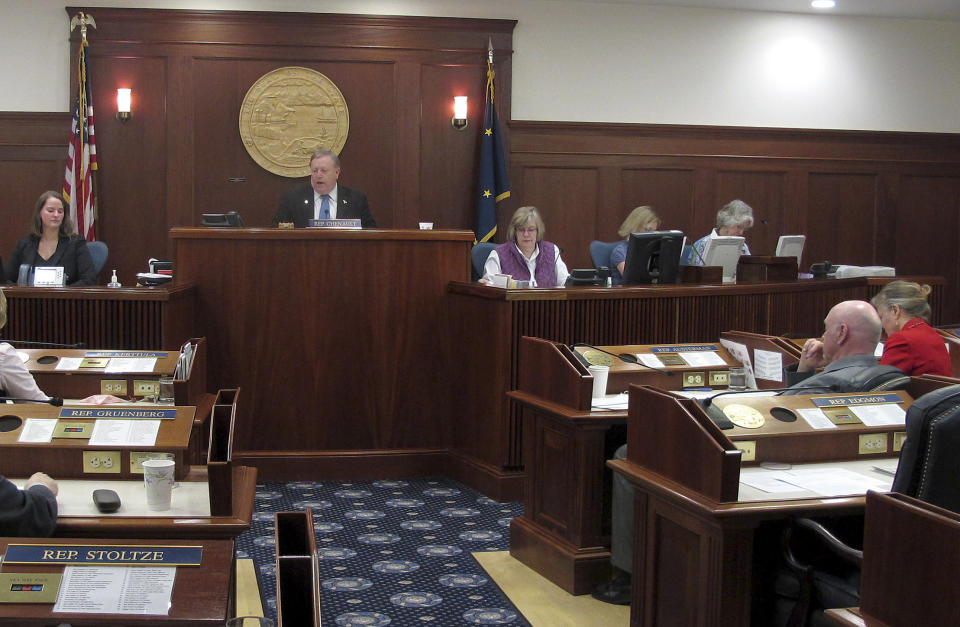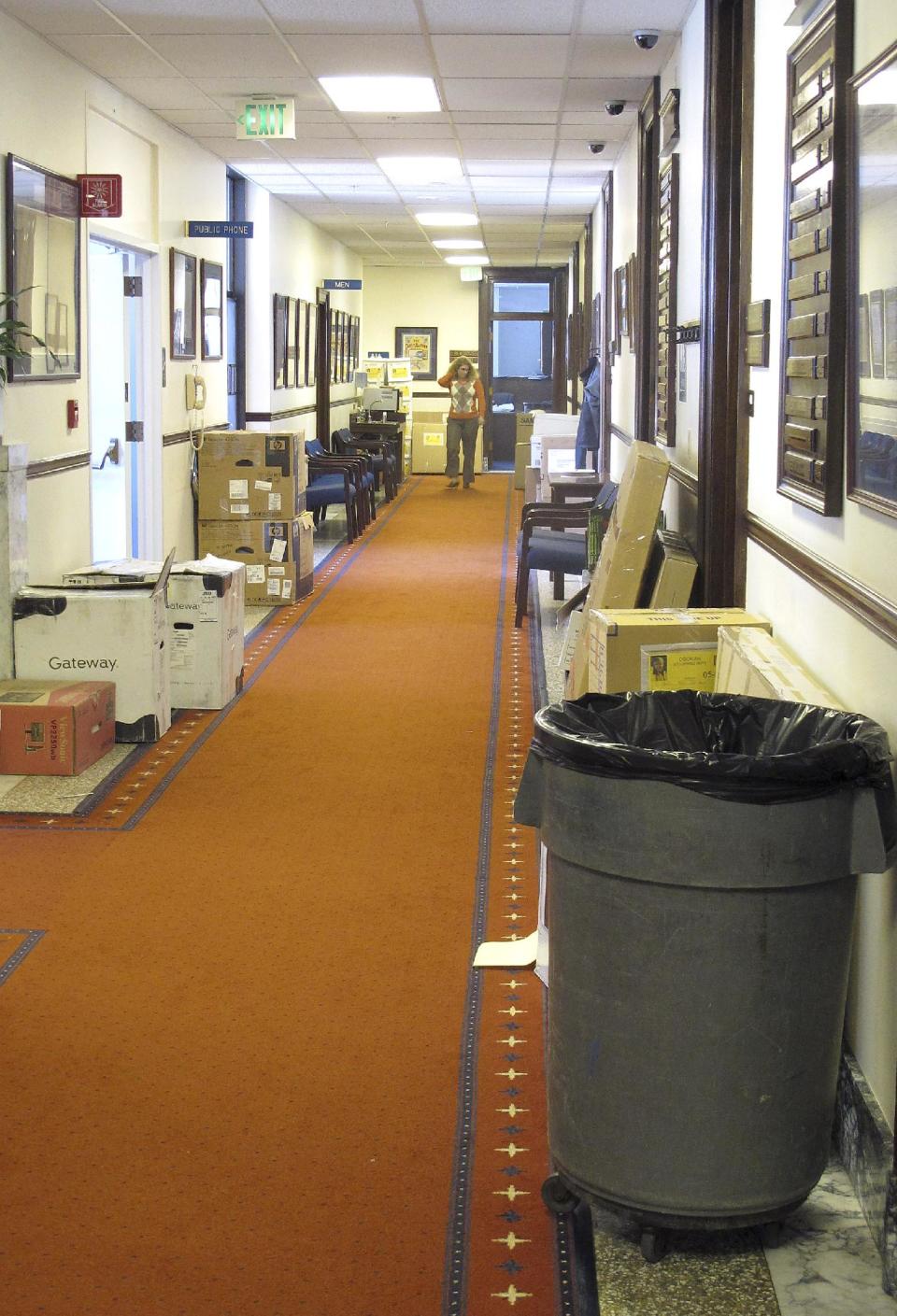Alaska governor introduces oil tax bill
JUNEAU, Alaska (AP) — Gov. Sean Parnell on Wednesday said his oil tax bill blends the House and Senate positions into what he calls a "comprehensive approach that will bring economic opportunity to Alaskans for generations to come."
The bill borrows from the proposal that passed the Senate last weekend, providing a tax break, or "production allowance," for the first 10 years of production from new fields on the North Slope. But it also cuts taxes for existing producers and allows tax incentives for well-lease expenditures — provisions more in line with the tax-cut bill, HB110, that passed the House last year but stalled in the Senate.
The Revenue Department, in its fiscal note, estimates the potential impact of the bill at about $1.2 billion to $1.4 billion next fiscal year, as compared with the fall revenue forecast. That assumes no new production. The estimate fluctuates but stays within that range between next year and 2018.
Parnell, in his transmittal letter, said the changes he proposes will increase exploration for new sources and greater development of existing fields. Revenue Commissioner Bryan Butcher said it will be up to industry to testify about the impact the bill could have and how much additional oil and investment it could lead to. While Butcher said the tax cut isn't at the same level as HB110, a bill that garnered support from industry, he said he thinks the governor's new plan proposes changes to Alaska's tax structure that are material enough that companies will look at the state in a different way.
Alaska's current tax structure features a 25 percent base tax rate and a progressive surcharge triggered when a company's production tax value hits $30 a barrel. Industry officials have said the surcharge eats too deeply into profits when oil prices are high, and discourages new investment.
Sen. Joe Paskvan, co-chair of the Senate Resources Committee, said he requested any modeling or analysis done by the administration on the existing-producer piece and lease-expenditure credits. At first blush, he said those pieces strike him as falling "out of bounds." Paskvan, D-Fairbanks, said he's hoping for the analysis to determine if that perception is accurate.
Parnell called a 30-day special session, which started Wednesday, to address oil taxes and in-state gas pipeline and human trafficking bills. The Legislature plans to pick up its work on the pipeline and trafficking bills where it left off at the end of the regular session — with HB9, the pipeline bill, in a Senate committee, and HB359, the trafficking bill, poised for a vote on the Senate floor.
The Senate Resources Committee plans to begin hearings on Parnell's new plan Thursday, followed by the House Resources Committee on Friday.
The special session comes against the backdrop of an election year for most lawmakers, and oil taxes, again, are expected to overshadow all else. Alaska relies heavily on oil revenues to run, but production is declining.
The Senate spent two months during the regular session delving into the oil tax issue but an overhaul of Alaska's tax structure stalled in the Senate's bipartisan majority during the last days, with a major stumbling block being how best to address legacy fields like Prudhoe Bay and Kuparuk, the mainstays of Alaska's oil industry, where production has been declining.
One of the concerns was with giving too much money to oil companies, particularly for oil they would have produced anyway. Others have felt that a tax cut is needed to boost incremental production.
The Senate instead melded a provision that gives a tax break for new-field production, similar to that from the stalled overhaul, onto a House bill intended to encourage oil and gas drilling in basins outside the North Slope and Cook Inlet. The House shot that down in the waning hours of the regular session, with Speaker Mike Chenault saying the provision hadn't been vetted in the House.
Sen. Bill Wielechowski, D-Anchorage, said the special session could be productive if there's movement forward on ways to encourage new-field oil production. The Senate approach would reward producers once there's oil.
"In the Senate, the thing we've said all along is that we want to incentivize new production," he said. "We don't want to give away money for the sake of giving away money."
Deputy Revenue Commissioner Bruce Tangeman said the potential for the quickest turnaround in production, giving the state the most bang for its buck, lies in existing fields.
Both sides in the debate say they want any changes to Alaska's tax structure to be meaningful. The issue is how best to get there.
"The costs of maintaining a declining field go up, and higher cost barrels of oil get left in the ground if they are not economic to produce," Parnell said in his letter. "That is the risk, that without meaningful tax change for legacy fields, as well as new fields, a larger percentage of Alaskans' resource will remain locked in the ground. We can avoid this risk and ensure a more prosperous future for Alaskans if we are willing to continue working to increase oil production in all of Alaska's fields."
___
Becky Bohrer can be reached at http://twitter.com/bbohrer .




